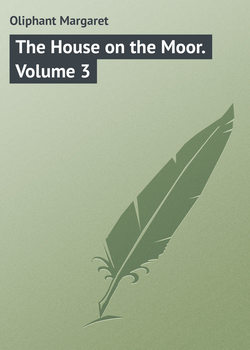The House on the Moor. Volume 3

Реклама. ООО «ЛитРес», ИНН: 7719571260.
Оглавление
Oliphant Margaret. The House on the Moor. Volume 3
CHAPTER I
CHAPTER II
CHAPTER III
CHAPTER IV
CHAPTER V
CHAPTER VI
CHAPTER VII
CHAPTER VIII
CHAPTER IX
CHAPTER X
CHAPTER XI
CHAPTER XII
CHAPTER XIII
CHAPTER XIV
CHAPTER XV
CHAPTER XVI
CHAPTER XVII
CHAPTER XVIII
CHAPTER XIX
CHAPTER XX
CHAPTER XXI
CHAPTER XXII
CHAPTER XXIII
CHAPTER XXIV
CHAPTER XXV
CHAPTER XXVI
Отрывок из книги
WHILE the rapid railway, of which she was half afraid among all her other fears and excitements, carried Susan across the border, her brother hastened by himself along the country road to Kenlisle. It still wanted an hour of noon, but Horace was angry to be so late, and his thoughts were not of the most agreeable description. It was, to be sure, no personal loss to himself which could be brought about by the mission of the old pitman to Sir John Armitage, which he had stopped for this time, but might not be able to stop again; but if the story was actually told to Roger Musgrave’s real friends, who would use it for the interests of the heir, there was an end of “the power” of Horace over the two attorneys, whose breach of trust could no longer be concealed. Then he was furious to think that his sister had heard something, much or little, of his conversation with the old man, and might have it in her power to give a clue to the secret. While mingled with this immediate concern was a renewed impression of the importance which his father attached to Colonel Sutherland’s letter, or at least to the information contained in it; and the most eager anxiety to get to London to resolve his fate, if that was possible, by investigations at Doctors’ Commons into the will. Whose will was it? Was he justified in believing that even the name of Scarsdale was the real name of the family, or at least of the testator who had willed a “posthumous punishment and vengeance” upon his father? Horace could give no answer to these questions; he could not even resolve on hastening to town immediately, for his time was bound to the will of another, and his funds were exhausted. To wait was the only possibility which remained to him, and he did that with a sufficiently ill grace.
Mr. Stenhouse, however, was still at Kenlisle. As soon as he reached the office, and had ascertained that Mr. Pouncet was in his private room, in conference with his former partner, Horace lost no time in demanding an audience. He was received by the Kenlisle lawyer with the greatest evident reluctance and hesitation. Mr. Pouncet gave him the veriest little nod as he came in, and glanced from Horace to Mr. Stenhouse with an expression which seemed to say that he was the victim of a conspiracy, and that some new complot was hatching against his peace. He did not even ask the young man’s business; the whole affair was growing unbearable to the man of character, who knew his reputation and credit to be in the hands of these two, yet who, frightened as he was, could scarcely veil his repugnance and impatience. Mr. Stenhouse, however, shook hands cordially with his new friend. “Well, Mr. Scarsdale?” he said, in his frankest tone, “any news?” He was not afraid; and to show that he had no occasion to be so, but that the whole burden of legal peril lay upon his unfortunate colleague, was a pleasure and refreshment indescribable to Mr. Pouncet’s amiable “friend.”
.....
Mr. Pouncet immediately betook himself to his papers as before, turning them over rapidly; he made no answer; habit had accustomed him to the civil taunts of Stenhouse – but he could not bear the same insulting inferences from a new voice.
“There is a very easy way of managing the matter,” said Horace, once more; “the man is old, and has been long in your service. He lost his son in an accident at the pit two years ago; it is perfectly practicable to pension him on that account.”
.....